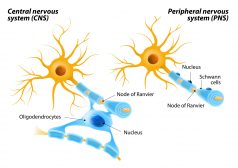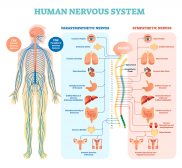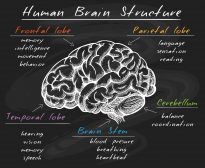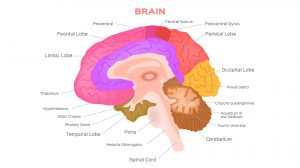Definition
noun
The organ system responsible mainly for coordination of bodily reactions, organ monitoring, and information (impulses) processing
Supplement
An organ system, (sometimes simply system), is a group of organs that work together to carry out a particular task. In humans and other animals, the organ systems are integumentary system, lymphatic system, muscular system, nervous system, reproductive system, urinary system, respiratory system, skeletal system, and immune system.
In vertebrates, the nervous system is an organ system that coordinates the activities of the muscles, monitors various organs, and processes information or impulses from the nerve cells of the sense organs. In humans, the nervous system is comprised of two major divisions: (1) the central nervous system and (2) the peripheral nervous system. The central nervous system consists of the brain, the brainstem and the spinal cord. The peripheral nervous system includes the cranial nerves, the spinal nerves, the sympathetic nervous system, and the parasympathetic nervous system.
In many invertebrates, the nervous system is composed of the segmental ganglia of the ventral nerve cord together with the fused ganglia or brain at the anterior end.
See also:
- nerve
- neuron
- brain
- sense organ
Related term(s):







